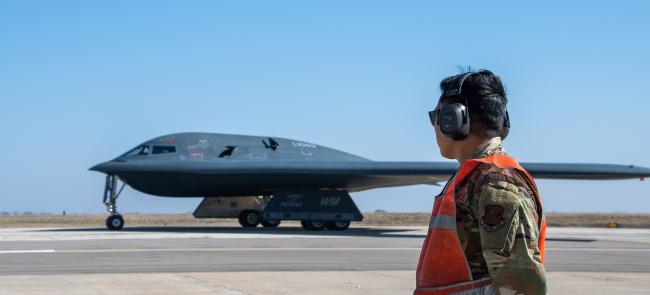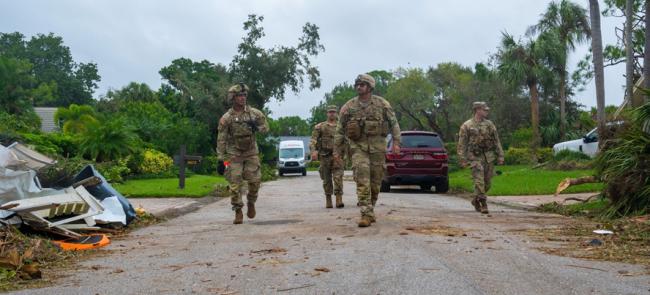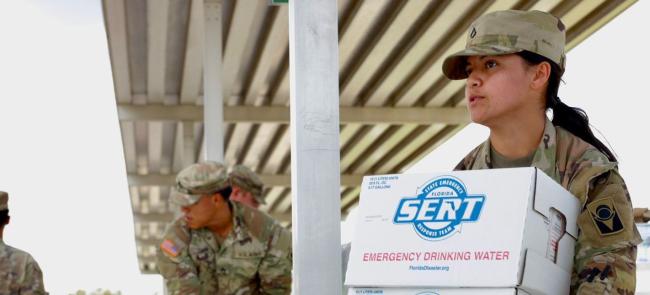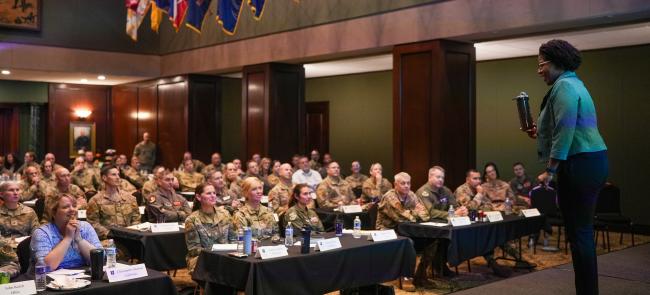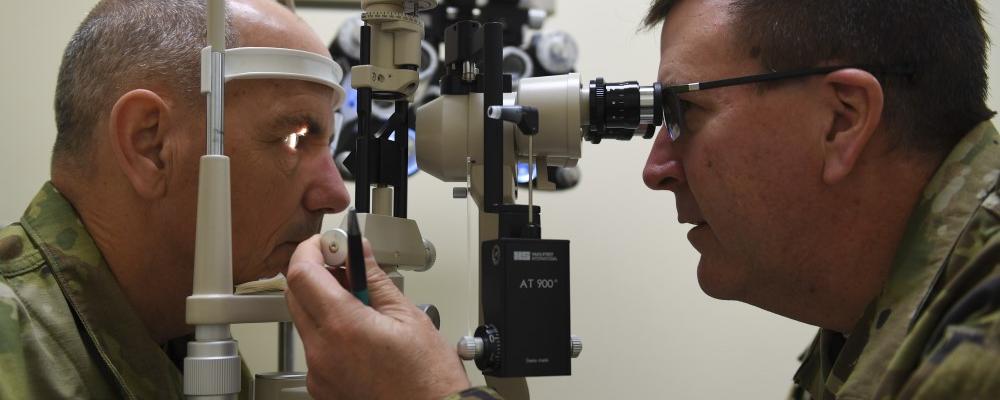
National Guardsmen demobilizing from COVID-19 operations on federal orders for 180 continuous days or more may now get their separation history and physical examination from a fully credentialed National Guard medical clinician.
The new policy, included in a memorandum signed Feb. 28 by the Defense Department, means Guardsmen no longer must obtain their SHPE from a military treatment facility.
This should make demobilizing easier for Guardsmen and decrease the administrative burden on active-duty military treatment facilities and the Department of Veterans Affairs, said Maj. Gen. Jill Faris, the director of the National Guard Bureau’s Office of the Joint Surgeon.
Members have up to 90 days after coming off activation to do so, she said.
The action follows a nine-month review by the Office of the Secretary of Defense, Faris added.
Several exceptions are also included within the memorandum, which are intended to improve SHPE access for covered Guardsmen and to preserve the opportunity to record service-related health concerns.
For example, audiograms and laboratory testing may be completed as needed, according to the professional medical judgment of a DoD health care provider.
Additionally, on a case-by-case basis and after conducting a mission-risk assessment, the military department concerned may authorize the replacement of the SHPE requirement with alternatives.
Faris explained documentation is key, and Guardsmen should not procrastinate in addressing medical challenges.
According to the VA, examples of service-related injuries may include chronic back pain, breathing problems resulting from a current lung condition or lung disease, severe hearing loss, scar tissue and loss of range of motion.
With each case, a DoD health care provider will determine whether further examination is in the best interest of the Guardsmen.
DoD health care providers will consider factors such as known or reasonably expected requirements for the member to produce medical documentation to support a line-of-duty inquiry or transition to a medical hold status.
To waive the physical examination, the member must concur with the provider’s determinations.
“Normal day-to-day things can happen in a person’s life, [and] this is a way for us to be able to document it and for it to live in their medical record,” Faris said. “If something else happens along the way, then we have a touchpoint of any medical challenge that we have. Then, we can collectively do a really good medical assessment on our airman or soldier."
Ultimately, she added, the new policy helps ensure that Guard members are ready for future challenges.
The current memorandum will stay in effect until Feb. 28, 2023. Faris said she hopes it will be evaluated after that and, if the Guard can demonstrate proficiency, be considered by OSD Health Affairs for permanent implementation.

